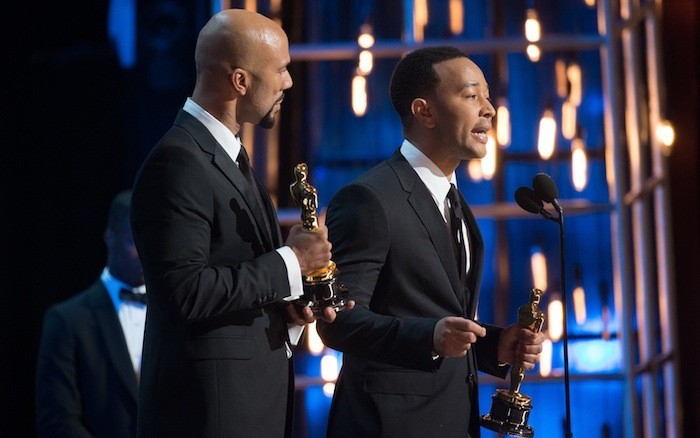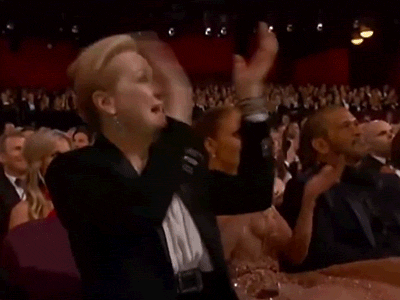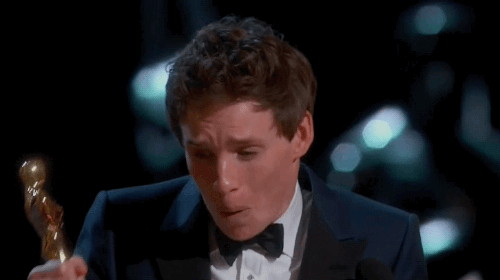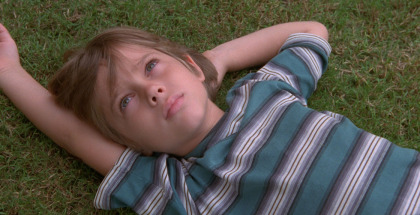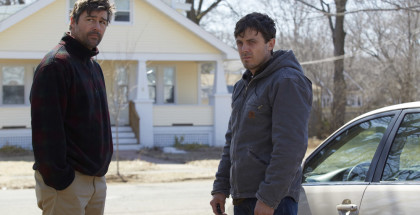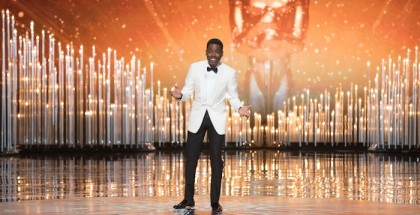Oscars 2015: The year the speeches said something
David Farnor | On 23, Feb 2015
The 2015 Oscars approached with the mildly uncomfortable knowledge that all 20 nominations for performances went to white actors. “Tonight, we celebrate the best and whitest… sorry, the best and brightest,” quipped host Neil Patrick Harris at the start of the evening.
But while the ceremony dragged, somehow finding time to include a surprise tribute to The Sound of Music, and Harris got caught between upbeat silliness and awkwardly negative jibes that didn’t get laughs, the 2015 Oscars emerged as a year of surprisingly serious, often political, speeches. Imprisonment, suicide, sexism and even immigration all got a mention.
It began with Pawel Pawlikowski, director of Ida, who accepted the award for Best Foreign Language Film. “I’m honored, surprised and overwhelmed,” he started, before going on to shout out to “Polish friends who are in front of the TV. The crew who were in the trenches with us and who are totally drunk now…”
The people running the show tried to play him off with music, but Pawlikowski kept talking. “I would like to dedicate it to my late wife, my parents, who are not among the living, but who are totally inside this film and they have a lot to do with the film,” he continued, at which point the ceremony directors seemed to relent in the face of a sensitive topic.
“And my children, who are hopefully watching, who are still alive,” added the director. “Thank you, thank you. Victor and Maria, Victor and Maria, I love you. You are the main prize. Thank you.”

Photo: Mark Suban / ©A.M.P.A.S.
From that point on, people increasingly spoke over their get-off-the-stage-now music, and what would usually be a chance to say lots of breathless thank you’s became a platform for people to talk about important issues.
Patricia Arquette picked up the Best Support Actress statuette for Boyhood, thanking those who work with GiveLove.org to bring ecological sanitation to the developing world, before going on to speak passionately about equality.
“To every woman who gave birth, to every taxpayer and citizen of this nation, we have fought for everybody else’s equal rights,” she declared.
“It’s our time to have wage equality once and for all and equal rights for women in the United States of America.”
The audience whooped. Near the front, Meryl Streep – a.k.a. the Queen of acting – got out of her chair and yelled her support.
The house was brought down once again by Graham Moore, whose Adapted Screenplay win for The Imitation Game prompted an honest and inspiringly frank call for people to be themselves.
“Alan Turing never got to stand on a stage like this and look out at all of these disconcertingly attractive faces and I do,” he said.
“And that’s the most unfair thing I think I’ve ever heard. So, in this brief time here, what I want to use it to do is to say this: When I was 16 years old, I tried to kill myself because I felt weird and I felt different and I felt like I did not belong. And now I’m standing here and, so, I would like for this moment to be for that kid out there who feels like she’s weird or she’s different or she doesn’t fit in anywhere. Yes, you do. I promise you do. You do. Stay weird. Stay different. And then when it’s your turn and you are standing on this stage, please pass the same message to the next person who comes along.”
Ellen Goosenberg Kent, who won Best Documentary Short for Crisis Hotline: Veterans Press 1, also emphasised the importance of talking openly about suicide: “I want to dedicate this to my son Evan Perry. We lost him to suicide. We should talk about suicide out loud. This is for him. Thank you.”
After winning Best Director and Best Picture, Birdman’s Alejandro G. Iñárritu was welcomed to the stage by Sean Penn, who made a gag about green cards.
Iñárritu seized the chance to talk about immigration.
“I want to dedicate this award for my fellow Mexicans,” he concluded. “The ones who live in Mexico, I pray that we can find and build the government that we deserve. And the ones that live in this country who are part of the latest generation of immigrants in this country, I just pray that they can be treated with the same dignity and respect of the ones who came before and build this incredible immigrant nation.”
The most stirring speech, though, came from Common and John Legend, who deservedly took home Best Song Oscars for Glory, which plays over the end credits of Selma. A track that links the events of the time with those in Ferguson today, it’s a powerful reminder of the ongoing relevance of Dr. King’s campaigns for civil rights.
Lonnie Lynn, a.k.a. Common, said: “Recently, John and I got to go to Selma and perform Glory on the same bridge that Dr. King and the people of the civil rights movement marched on 50 years ago. This bridge was once a landmark of a divided nation but now is a symbol for change. The spirit of this bridge transcends race, gender, religion, sexual orientation and social status. The spirit of this bridge connects the kid from the South Side of Chicago dreaming of a better life to those in France standing up for their freedom of expression, to the people in Hong Kong protesting for democracy. This bridge was built on hope, welded with compassion and elevated by love for all human beings.”
John Stephens, a.k.a. John Legend, added: “We wrote this song for a film that was based on events that were 50 years ago but we say that Selma is now because the struggle for justice is right now. We know that the Voting Rights Act that they fought for 50 years ago is being compromised right now in this country today. We know that right now the struggle for freedom and justice is real. We live in the most incarcerated country in the world. There are more Black men under correctional control today than were under slavery in 1850. When people are marching with our song, we want to tell you we are with you, we see you, we love you, and march on.”
Of course, there was still time for the traditional thank-you’s, but even they seemed more genuine than in previous years. Eddie Redmayne virtually leapt out of his skin with happiness while on stage to collect Best Actor for The Theory of Everything.
J.K. Simmons (Best Supporting Actor, Whiplsh), though, was more measured.
He praised his wife and his children, saying they were “extraordinary human beings… because you are a reflection of your mother”. Then, he implored everyone in the audience: “If you’re lucky enough to have a parent or two alive on this planet, call ‘em. Don’t text. Don’t email. Call them on the phone. Tell ‘em you love ‘em, and thank them, and listen to them for as long as they want to talk to you. Thank you. Thank you, Mom and Dad.”
Photo: Matt Petit / ©A.M.P.A.S.


